Filter by

A Theory of Regret
In A THEORY OF REGRET Brian Price takes up regret as a useful political emotion and, surprisingly, as a way to understand bureaucracy. Drawing on the work of Hannah Arendt, Aristotle, and Heidegger, as well as examples from film, Price presents a philosophical reflection on the transformative qualities of regret insofar as it provides opportunities to re-evaluate our commitments and to recogniz…
- Edition
- Ed. 1
- ISBN/ISSN
- 9780822372394
- Collation
- -
- Series Title
- -
- Call Number
- 352,63 PRI t
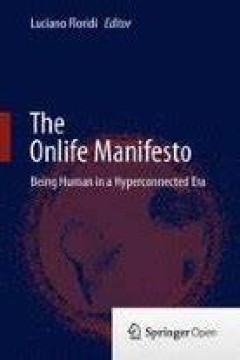
The Onlife Manifesto
What is the impact of information and communication technologies (ICTs) on the human condition? In order to address this question, in 2012 the European Commission organized a research project entitled The Onlife Initiative: concept reengineering for rethinking societal concerns in the digital transition. This volume collects the work of the Onlife Initiative. It explores how the development and…
- Edition
- 1
- ISBN/ISSN
- 978-3-319-04093-6
- Collation
- -
- Series Title
- XIV, 264
- Call Number
- -

Doubts on Avicenna: A Study and Edition of Sharaf al-Dīn al-Masʿūdī’s C…
In Doubts on Avicenna, Ayman Shihadeh offers an extended study and critical edition of Sharaf al-Dīn al-Masʿūdī’s al-Mabāḥith wa-l-Shukūk, a key and hitherto unstudied source for twelfth-century Arabic philosophy. This text inaugurates the long commentarial tradition on Avicenna’s Ishārāt. Readership: All interested in the history of medieval Arabic philosophy and rational theolog…
- Edition
- -
- ISBN/ISSN
- 9789004302532
- Collation
- -
- Series Title
- -
- Call Number
- -
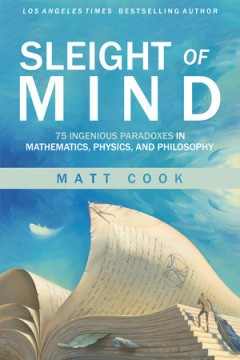
Sleight of Mind: 75 Ingenious Paradoxes in Mathematics, Physics, and Philosophy
Paradox is a sophisticated kind of magic trick. A magician's purpose is to create the appearance of impossibility, to pull a rabbit from an empty hat. Yet paradox doesn't require tangibles, like rabbits or hats. Paradox works in the abstract, with words and concepts and symbols, to create the illusion of contradiction. There are no contradictions in reality, but there can appear to be. In Sleig…
- Edition
- -
- ISBN/ISSN
- 9780262356893
- Collation
- -
- Series Title
- -
- Call Number
- -
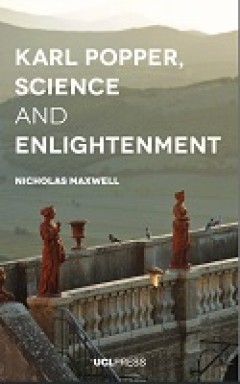
Karl Popper, Science and Enightenment
Here is an idea that just might save the world. It is that science, properly understood, provides us with the methodological key to the salvation of humanity. A version of this idea can be found in the works of Karl Popper. Famously, Popper argued that science cannot verify theories but can only refute them, and this is how science makes progress. Scientists are forced to think up something bet…
- Edition
- Ed. 1
- ISBN/ISSN
- 9781787350397
- Collation
- 390
- Series Title
- -
- Call Number
- 121.68 KAR k
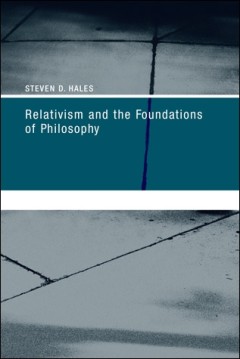
Relativism and the Foundations of Philosophy
A defense of the view that philosophical propositions are true in some perspectives and false in others, arguing that the rationalist, intuition-driven method of acquiring basic beliefs favored by analytic philosophy is not epistemically superior to such alternate belief-acquiring methods as religious revelation and the ritual use of hallucinogens. The grand and sweeping claims of many relat…
- Edition
- -
- ISBN/ISSN
- 9780262274746
- Collation
- -
- Series Title
- -
- Call Number
- 100 HAL r

Speculations II
From the Editorial Introduction: "If the first volume of Speculations was enough of an explicit wager, a willing blind leap in the terra incognita of the publishing world, then this volume forces us to stop and evaluate the reasons for the journal’s protracted existence. This is all the more important when we consider how the range of meanings of the term ‘speculative realism’ seems to be…
- Edition
- -
- ISBN/ISSN
- 9781953035028
- Collation
- -
- Series Title
- -
- Call Number
- -
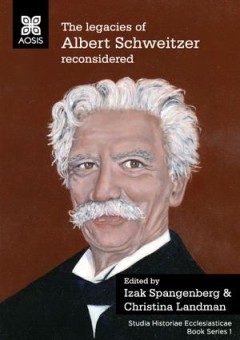
The legacies of Albert Schweitzer reconsidered
This book on the legacy of Albert Schweitzer contextualises this remarkable intellectualist, humanist, medicine-man, theologian and Nobel Prize winner. This collected work is aimed at specialists in the humanities, social sciences, education, and religious studies. The authors embrace philanthropic values to benefit Africa and the world at large. The publication engages with peers on the releva…
- Edition
- -
- ISBN/ISSN
- 9781928396031
- Collation
- -
- Series Title
- -
- Call Number
- 300 LEG

Confucianism: Its Roots and Global Significance
In Confucianism: Its Roots and Global Significance, English language readers get a rare opportunity to read the work in a single volume of one of Taiwan’s most distinguished scholars. Although Lee Ming-huei has published in English before, the corpus of his non-Chinese writings is in German. Readers of this volume will discover the hard-mindedness and precision of thinking associated with Ger…
- Edition
- Ed. 1
- ISBN/ISSN
- 9780824878320; 9780824878313
- Collation
- -
- Series Title
- Confucian Cultures
- Call Number
- 299.512 CON c

Bikes and Bloomers Victorian Women Inventors and their Extraordinary Cycle Wear
The bicycle in Victorian Britain is often celebrated as a vehicle of women's liberation. But much less is known about another critical technology with which women forged new and mobile public lives – cycle wear. Despite its benefits, cycling was a material and ideological minefield for women. Conventional fashions were vastly inappropriate, with skirts catching in wheels and tangling in pedal…
- Edition
- -
- ISBN/ISSN
- 9781912685431
- Collation
- -
- Series Title
- -
- Call Number
- -
 Computer Science, Information & General Works
Computer Science, Information & General Works  Philosophy & Psychology
Philosophy & Psychology  Religion
Religion  Social Sciences
Social Sciences  Language
Language  Pure Science
Pure Science  Applied Sciences
Applied Sciences  Art & Recreation
Art & Recreation  Literature
Literature  History & Geography
History & Geography